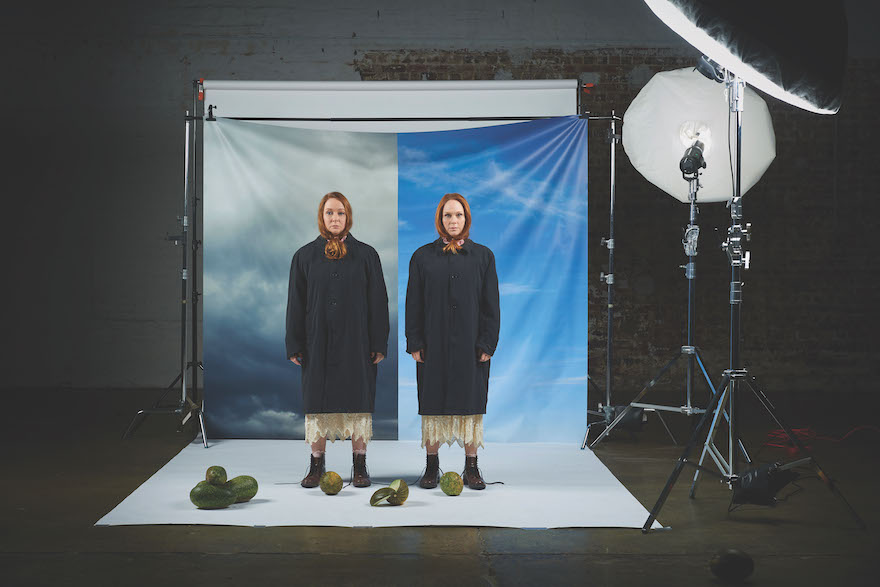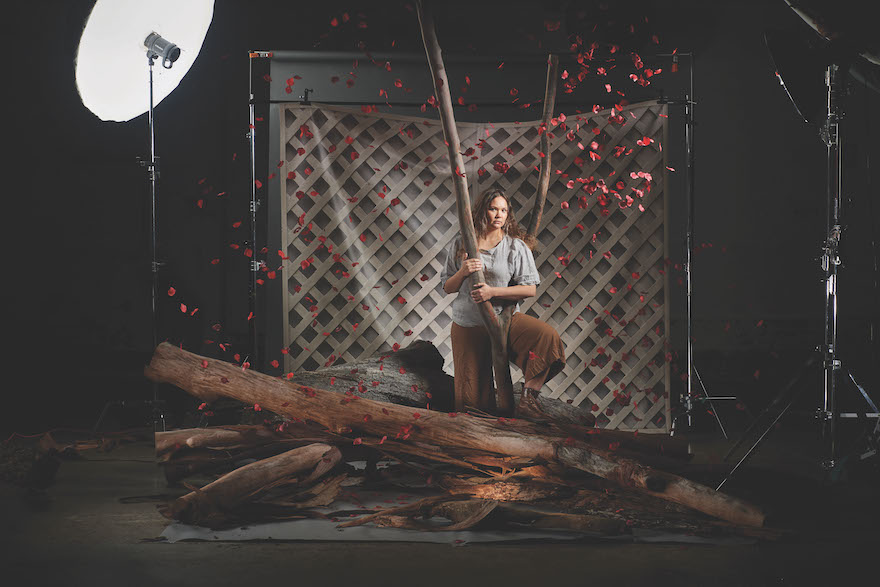Black Swan artistic director Kate Champion sees her first season as a bridging year, one in which to listen and learn rather than impose her vision. But not everyone is happy about the dearth of local talent in the 2023 season, writes Mark Naglazas.
Meet WA theatre’s new Champion
14 November 2022
- Reading time • 10 minutesTheatre
More like this
- The A to Zed of reviewers | Vale David Zampatti
- Just what the doctor ordered
- Lifting the weight of the world
Whenever a major name from the east or abroad arrives to take over a flagship Western Australian arts company, locals expect them to kick off with a grand plan, to launch with a vision that galvanises an organisation and fires up its audience.
Such is the case with Black Swan State Theatre Company’s new artistic director, Kate Champion. A dancer/performer, her glittering career includes stints with the UK’s DV8 Physical Theatre, as well as founding the celebrated Sydney-based dance theatre company Force Majeure. Over the past decade, she has directed scripted theatre works (her current MTC show, Girls and Boys, is getting rave reviews). Indeed, the Helpmann Award winner has such an impressively wide-ranging CV we expected her to begin her BSSTC reign with philosophy and fireworks.
Champion, however, has chosen a more modest approach curating her first season at the helm of Black Swan. It’s an intriguing mix of imported works (Cyrano from the Melbourne Theatre Company, Jurrungu Ngan-ga from Broome-based Marrugeku), a remount (The Blue Room hit The Bleeding Tree), and two Champion-directed pieces (Andrew Bovell’s Things I Know to Be True and a new play, Dirty Birds, from acclaimed WA acting sisters Mandy and Hayley McElhinney). Black Swan’s new artistic director wants to get the lay of the land before forging ahead.

“I don’t believe in arriving and declaring, ‘This is how it’s going to be.’ There’s an enormous arrogance to that attitude,” Champion tells me in Black Swan’s Northbridge offices ahead of the program launch.
“I believe it’s important to take the temperature and to listen, to understand what’s gone before and to see the possibilities.
“It is not that I don’t have a vision. My vision is everything I’ve done in my career. I’m interested in new Australian work, I’m interested in storytelling, I’m interested in quality development and how that needs to be properly resourced. I also understand with a state theatre company you must strike a balance between known work and new work that challenges an audience.
“But while I am supportive of the approaches that have pushed Black Swan in different directions over the years and will take from all of them, I don’t want to make it the reason for a work. For me the reason for doing a work is the quality of the story.
“I began in dance and dance theatre, then moved into more traditional scripted theatre, so I have a very long and varied career. But it’s always been because I am interested in that play, that opera, that circus. My brother was in Circus Oz and I took it as another challenge to direct circus. It’s all just storytelling. And the more I do, the more I feel I can bring something of value to a work.”

Running a flagship theatre company is one of two great new adventures for Champion. The other is engaging with a culture and a society that’s a long way from the great urban centres, such as London and Sydney, where she has lived and worked.
“I am fascinated with the point of view of places on the edge. There’s something about seeing the world from a distance that gives you clarity,” she says.
“I remember reading about how Tim Winton wrote Cloudstreet while he was in Ireland. I think the same about Perth and the rest of the world. It’s a point of view I am fascinated to explore and embrace.”
Champion’s desire to get to know the local theatre scene before forging ahead and the lateness of her appointment — “I was being interviewed at the time we would be working on budgets and planning” — meant that her first season had to be fleshed out with imported ready-made shows.
“I worried about coming in so late and initially thought the 2023 season should be curated by somebody else. Then I thought, ‘Who’s going to be more able to do that than me?’ I didn’t have work in the pipeline and didn’t want to throw anything out there too quickly. So by necessity I had to include established works.”

Importing shows does not set a precedent, insists Champion. “I am proud of every single one of the works in the season and don’t feel it is a compromise. In subsequent years there will be more original work and more opportunities for local artists. Next year is a bridge. Considering where we are post-COVID and how to best manage our resources, I believe I’ve put together an exciting but responsible season, with the emphasis on quality over quantity.”
Champion’s first season has received mixed reviews from the WA theatre community. While everyone I spoke to was excited by the line-up, several practitioners expressed concern about the lack of work for local artists.
“The two biggest pieces in the season are buy-ins, a third is a remount of a Blue Room work. If you can only afford to do a five-show season, then the company should be acutely focused on people who live in Western Australia,” says a leading local theatre artist, who contacted me after the season announcement (they’ve chosen to remain anonymous for professional reasons).
“There are 10 jobs for Perth-based actors next year. There are no local directors being used. There’s work for a couple of designers and stage managers, but that’s about it. As the flagship theatre company in this state, Black Swan is failing on their remit to employ and enrich local artists.
“Kate has programmed what looks like a wonderful season. But we could build a show such as Cyrano in Western Australia for far less than the cost of bringing it over. Just the accommodation expenditure for importing the Marrugeku piece and the Melbourne Theatre Company buy-in far outweighs the spending on local actors next year.”

The theatre maker is not satisfied with the argument that Champion needs time to familiarise herself with the local scene. “Just because Black Swan has employed a director who is not familiar with the artists in our city shouldn’t mean the artists suffer over the next 12 to 18 months because she is bringing in artists from the eastern states,” he says.
“Black Swan’s lack of investment in the local industry will have serious consequences. It will force many artists out of the industry. Black Swan should cornerstone for sustainable pathways for artists. It is what they are funded to do.”
Former Black Swan Co-CEO Rick Heath is far more sympathetic to Champion’s strategy of blending imported and home-grown work while she gets to know the local terrain. He also believes that a high-quality, more modestly scaled season is a smart strategy during the post-COVID recovery phase.
“Five wonderfully well-honed works of art will honour artists and audiences alike,” argues Heath. “Great work will build audiences and drive revenue, which is important in breaking the cycle of dependence on government and the corporate sector. A 15 percent annual growth in audiences would return the company half a million dollars in five years.
“If we accept that there hasn’t been a significant uplift in government investment since Alan Carpenter’s Ignite package (and I would argue that was more about keeping pace, than a significant uplift), one of the next most sustainable ways to generate revenue for the industry is to have more people buy more tickets.”

Another industry insider who believes Black Swan has made the right choice in Champion is Neil Armfield, arguably the country’s most celebrated stage director.
“It is a coup for Black Swan to secure Kate’s services,” says Armfield, who worked with Champion on his legendary production of Cloudstreet and, more recently, had her at his side as associate director on his celebrated version of Wagner’s Ring Cycle for Opera Australia.
“Kate’s been preparing for many years to take charge of a major theatre company. She’s now ready to fly. She has all the attributes needed for such a role. She has an ability to listen and to connect with honesty with the people she is working with. And she is utterly fearless.”
Armfield is not surprised that Champion has opted to program readymade works until she has a good grasp of what is going on in Western Australia.
“Kate is extremely exacting and has a deep commitment to quality,” argues Armfield. “She’s driven by an overwhelming sense of doing the best she can. No doubt there is pressure on Kate to move the company in one direction or the other. Her priority is not satisfying agendas. It is making work as good as it can be.
“I’m pleased to see Kate is doing a new production of Things I Know to Be True. It is a brilliant play and perfect for Kate’s first season. It is about community, which is what Kate will be encountering by relocating to Western Australia. She is becoming part of a new community. She will be an invaluable addition to the Western Australian theatre scene. Our loss is your gain.”
Black Swan’s 2023 season kicks off with Cyrano (February 17 to March 5) during Perth Festival.
Pictured top: Kate Champion says there will be more original work and opportunities for local artists in the future. Photo: Frances Andrijich
Like what you're reading? Support Seesaw.





